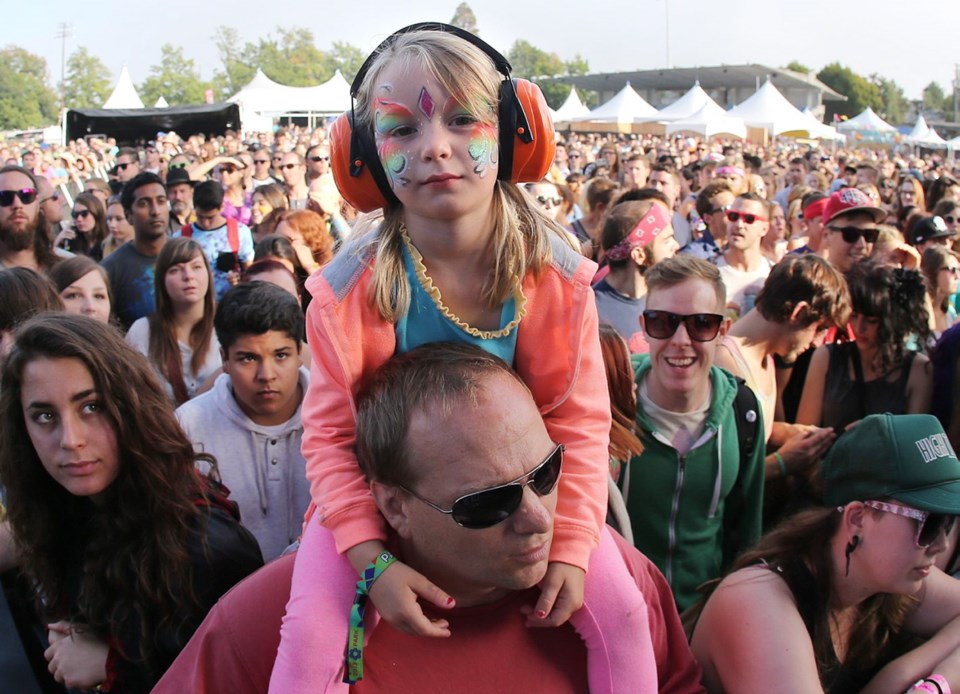Today’s music lovers not only appreciate their parents’ favourite bands, according to a new study, the songs shape the way they think and feel.
In the current edition of Psychological Science, authors Carol Lynne Krumhansl, of Cornell University’s department of psychology, and Justin Adam Zupnick, of the University of California, say they are the first to show that music transmitted from generation to generation shapes autobiographical memories, preferences and emotional responses, a phenomenon they call cascading reminiscence bumps.
Previous studies on music have shown music encountered in one’s late teens and early 20s has the greatest impact on individuals throughout their lives. Autobiographical memories are disproportionately recalled for this time period — the reminiscence bump.
However, unexpectedly, when the Cornell study in 2012 asked 62 participants with an average age of about 20 (born in 1992) to review top hits over five-and-a-half decades — from 1955 to 2009 — they best responded to music from 1980 to 1984 and 1960 to 1969. It turns out participants reacted most favourably to the music their parents would have played from their “adolescence” and their grandparents’ favourite music.
“Parents transmit knowledge and skills and may use music to convey personal values and define family and cultural identities,” the study notes. “These considerations all suggest that music heard during childhood, likely reflecting the tastes of previous generations, would make a lasting impression on children’s autobiographical memories, preferences and emotional responses.”
The study results were not lost on Genevieve Thomas and her husband Conrad Gustafson, both 39, and their children Lachlan, 14, and Elijah Gustafson-Thomas, 11, who attended Rifflandia, a four-day music festival in Victoria last weekend.
Thomas grew up listening to her parents’ music — bands such as Fleetwood Mac, Deep Purple and Cream.
“My parents had really good taste in music and I’ve always thought that was a gift they gave me,” Thomas said Sunday at Royal Athletic Park. “Not to say I have great taste in music, but just exposure to good music — so we’ve always tried to include that as part of our family as well.”
The family of four was united in their desire to see Edward Sharpe and the Magnetic Zeros. It’s a band the whole family has listened to for years. Beyond that, Thomas wanted to see Big Boi, of the Atlanta rap duo OutKast.
Daughter Lachlan said most of the bands she listens to are those her mother has introduced — some of it “older” hip hop to which she wouldn’t otherwise be exposed.
“It’s a perfect opportunity for them to not only learn about music in a technical aspect — rhythm, beat, melody — but also culturally and as an artistic statement,” Thomas said.
“I think it’s so important, especially right now in the culture we’re living in, that there’s dissenting voices. I think that always comes through in the arts, and music is one of the most profound ways.”
One of those dissenting voices at Rifflandia was Courtney Love. Lindsey O’Bryon, 32, took to the concert her daughter Mayzie O’Bryon, who turns three next month. Hearing of the study’s conclusions, O’Bryon likes the idea that her gregarious toddler might one day remember, like and be influenced by “mom’s music.”
O’Bryon said as a feminist who since the age of 14 has listened to Love, she wanted to expose her daughter to a female artist — love her or hate her — who is strong and her own person.
“She does have a feminist message,” O’Bryon said. “And everyone may not like her, but she’s doing her own thing.” And while she doesn’t judge parents who play children’s-music artists such as Fred Penner for their kids, O’Bryon said she can’t help but find such children’s music boring and thinks her daughter might agree.
“I would prefer to share the experience of us both enjoying music,” O’Bryon said as her daughter danced.
Tim Green, 34, who attended Rifflandia with his son Alex, seven, doesn’t think he had much of a choice not to be influenced by the music of his mother, Allison Green, 66, who was also at the music festival at Royal Athletic Park. Allison Green is a fixture on the local live music club scene even now, she joked.
“My mom pretty much got me into pretty much everything I listen to,” said Tim Green, a musician. Now Tim and Pat, Alex’s parents, introduce him to their music — young Alex was at Solstice Café last Friday night to see a bluegrass band, and on Sunday he was dancing madly to Australian hip-hop group Bliss N Eso at Rifflandia.
If the findings of the Cornell study play out, young Alex will be most influenced by the music from his teens and early adulthood, but he’ll also have an emotional reaction and preference for the music of his parents and possibly grandparents.
The online version of the study can be found at: pss.sagepub.com/content/early/2013/09/06/0956797613486486



